Table of Contents
Indefinite and Distributive Pronouns:
Indefinite Pronouns:
(1) Indefinite Pronouns do not refer to any particular person or thing but to persons and things in general. Indefinite Pronouns are-
One, none, they (people), it, all, some, few, other, others, any, anyone, everyone, someone, anybody, everybody, nobody, somebody. Examples-
- They say God is present in Nature.
- It is said God is present in Nature.
- Some say God is present in Nature.
- Of the two books one is good, the other is bad.
(2) One is used-
(I) In place of preceding noun to avoid repetition; as,
- This is an old book, I want a new one.
- Bring some mangoes, which are good ones.
(II) To represent people in general; as,
- One must do one’s duty (not his duty).
- But when one is a numeral, we can say, “One of the girls has broken her slate”.
- Everyone should do his duty.
(III) In the sense of beings or creatures; as,
- The sparrow feeds its young ones.
(3) None (= No one) is used both in the singular and plural depending upon the sense. Generally, when it refers to Persons or Common Nouns, it is used in the plural. But when it refers to Material Nouns, it is used in the Singular; as,
- None but the brave deserve the fair. (Persons)
- Did you bring apples? None were available in the market. (Common Noun)
- Why did you not take milk? There was none in the bazaar. (Material Noun)
(4) (I) The Indefinite Pronouns anybody, somebody, everybody, each, someone etc., are used in the singular number and third feminine gender is used according to the context; as,
- Everyone of the boys was given his (not their) share.
- Each of the girls was given her (not their) share.
(II) But when sex is not mentioned, he, his, etc., are used; as,
- I want everbody to get his share (not their share).
- Nobody is satisfied with his lot.
- Anyone can enjoy the beauty of the morning, if he gets up early.
(5) Some common mistakes with Indefinite Pronouns-
| Incorrect | Correct |
|---|---|
| Each of the boys were given their prize. | Each of the boys was given his prize. |
| One should tell his friends the things that he wants to tell himself. | One should tell one’s friends the things that one wants to tell oneself. |
| None but the brave deserves the fair. | None but the brave deserve the fair. |
| Did you buy a book? There were none in the market. | Did you buy a book? There was none in the market. |
| Everybody did their best. | Everybody did his best. |
Distributive Pronouns:
(1) Distributive Pronouns show that things or persons are taken singly or in separate groups. They take a verb in the singular; as,
- Each of the guests was welcomed. (Each means everyone of two or more persons or things).
- Either of the two girls can go. (Either means one of the two persons or things).
- Trees were planted on either side of the road. (Either here, means ‘both).
- Neither of the two mangoes is good. (Neither is the opposite of either and means not one of the two).
(2) Each other is used for two. One another for more than two; as,
- The two brothers love each other.
- The four brothers love one another.
(3) (I) Any is used for more than two in the positive; as, You can have any of these three mangoes.
(II) None is used for more than two in the negative; as, You can have none of these five oranges.
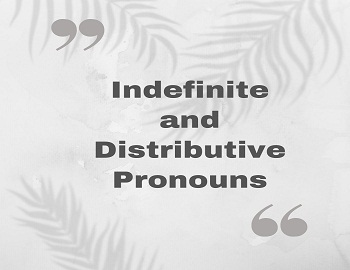

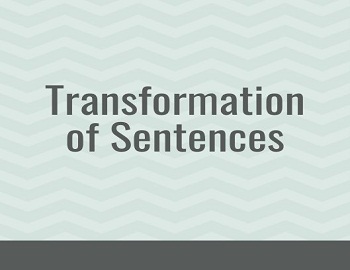

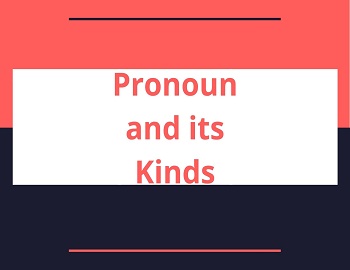
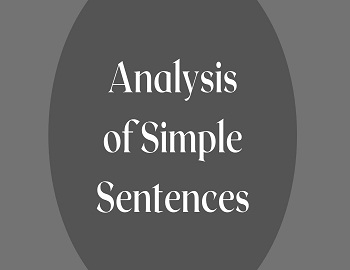

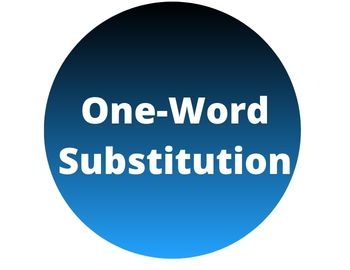

Comments (No)